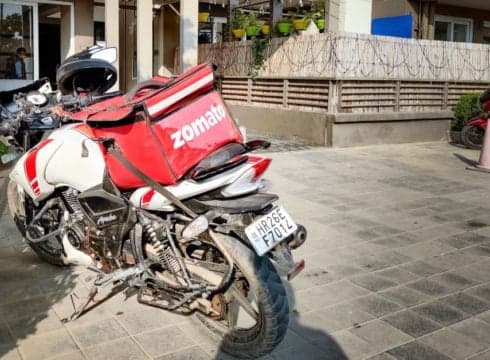In FY20, Zomato revenue increased 84% year-on-year to INR 2,486 Cr
The company’s total expenses for the period stood at INR 4,628 Cr, an increase of 37% from INR 3,383 Cr in FY19
Based on Zomato’s performance in the Covid-19 hit first quarter of FY21, the company could see its revenue decline 54-58% in the current financial year, compared to FY20
Inc42 Daily Brief
Stay Ahead With Daily News & Analysis on India’s Tech & Startup Economy
What The Financials
Inc42 unveils and deciphers all the important financial metrics of Indian startups across industries. Find out revenues, unit economics, profit & loss and all the important financial metrics to judge how the startup will perform in the coming years.
Indian foodtech unicorn Zomato saw its loss increase 161% to INR 2,451 Cr in the fiscal year ending March 31, 2020, from INR 940 Cr in 2019, the company’s regulatory filings sourced through data intelligence platform Tofler revealed.
In FY20, Zomato saw its revenue increase 84% year-on-year to INR 2,486 Cr. The filings mention that the primary revenue source for the company is through ad sales, online ordering and Zomato Gold (now called Zomato Pro) business segments. Revenue from operations stood at INR 2336 Cr, while other income came in at nearly INR 150 Cr for the year.
“Unit economics in online ordering improved significantly with increased revenue, lower logistics cost and user discounts,” the company stated.
The substantial rise in Zomato’s loss for the year could be attributed to an increase in expenses across the board. Employee benefit expenses increased 33% from INR 467 Cr in FY19 to INR 621 Cr in FY20; finance costs increased 33% from INR 58 Cr in FY19 to INR 77 Cr in FY20; and, other expenses, which includes the company’s spending in rent, fuel, legal services, conveyance, advertising and miscellaneous expenses, increased 36%, from INR 2,834 Cr in FY19 to INR 3,856 Cr in FY20. The company’s total expenses for the period stood at INR 4,628 Cr, an increase of 37% from INR 3,383 Cr in FY19.
In FY20, the company also acquired ride-hailing firm Uber’s food delivery unit UberEats’ India business for $350 Mn (INR 2,559 Cr), although it’s not clear whether the company has accounted for the acquisition in its expenses for the year.
How Will Zomato Fare In The Pandemic Year?
The filings mention that the impact of the Covid-19 pandemic and the resultant countrywide lockdown has been felt by the company from March 2020 onwards, resulting in a significant reduction in order volumes and dine out revenue. Of course, the financials do not reflect the impact of this slowdown, given that they are for the previous fiscal year. Zomato said the company is working on a number of products to address this loss, like “contactless dining and delivery/takeaway products in certain geographies outside of India”.
In July, Inc42 reported that Zomato’s earnings in the Covid-19-hit first quarter of FY21, from April to June, stood at $41 Mn (INR 299 Cr), while the loss was $12 Mn (INR 88 Cr).
Based on Zomato’s revenue in the first quarter of the current fiscal year, it looks like FY21 wouldn’t be as profitable for the company as FY20. Assuming that the average quarterly revenue for Zomato will be between $41 Mn and $45 Mn, the expected annual revenue for FY21 will be in the range of $165 Mn-$180 Mn. Compared to FY20, the financial year 2020-21 might bring a revenue decline of approximately 54% to 58% for the company.
Although, in its mid-Covid report released in September last year, Zomato had noted that its food delivery business had made a complete recovery in affluent neighbourhoods of Delhi and Mumbai, while the business was operating at 80% of pre-Covid volume in cities like Bengaluru, Hyderabad and Chennai.
On New Year’s Eve (December 31, 2020), Zomato CEO Deepinder Goyal said that the company had recorded 60% more GMV as compared to the same time in 2019. “That’s GMV of ₹75 crores in one single day, with peak orders per minute (OPM) rate of 4,254,” Goyal wrote on Twitter.
Founded in 2008, Zomato is one of at least six Indian startups that are planning an Initial Public Offering (IPO) this year. However, the fact that most of these startups, including Zomato, aren’t profitable, means that an overseas listing is a near certainty, given that many of these companies have their parent entities incorporated in Singapore or the US.
{{#name}}{{name}}{{/name}}{{^name}}-{{/name}}
{{#description}}{{description}}...{{/description}}{{^description}}-{{/description}}
Note: We at Inc42 take our ethics very seriously. More information about it can be found here.


